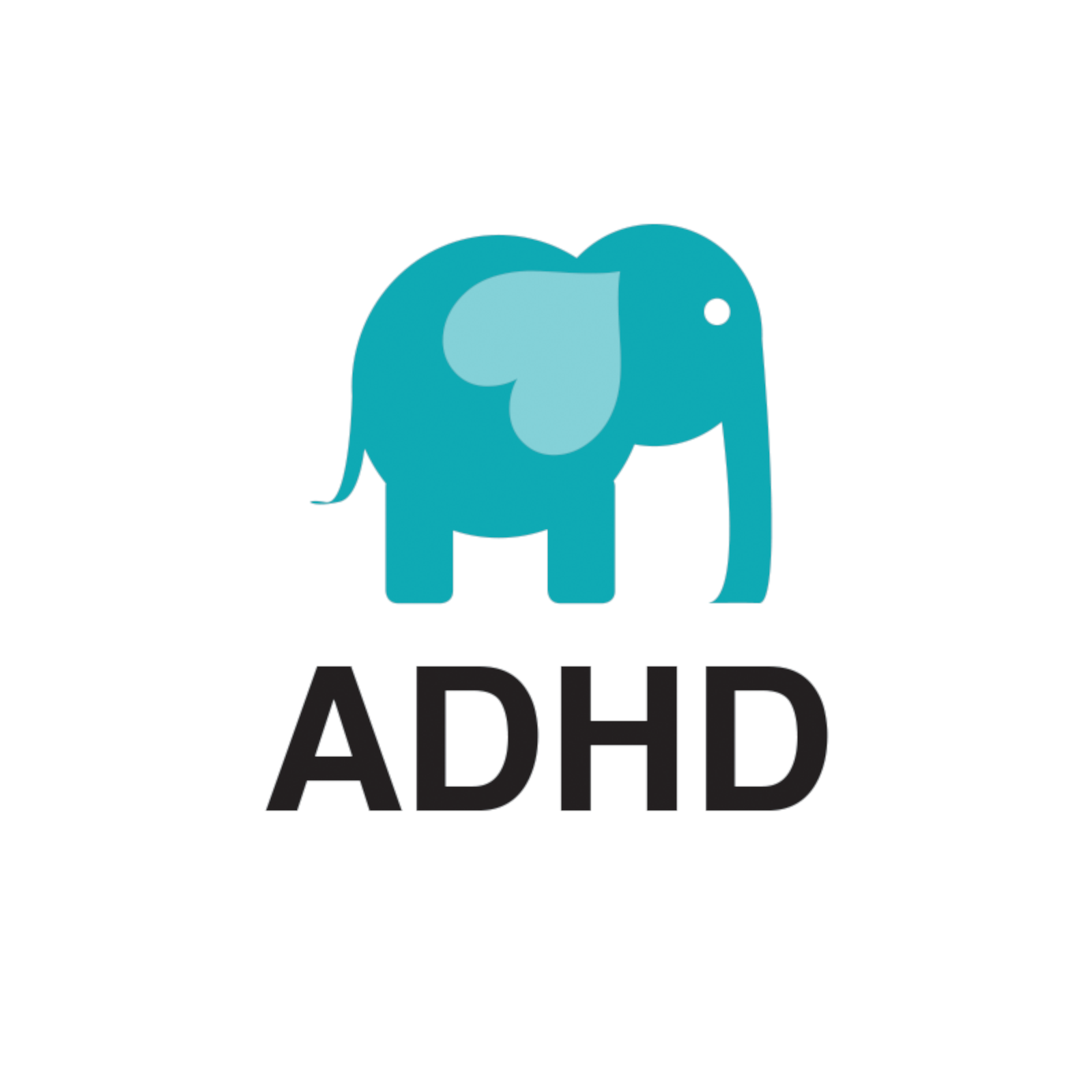
823.2K
Downloads
213
Episodes
Drawing on years of experience working with families, Parenting Coaches Siope Kinikini and Kimber Petersen share how families can improve, heal, and find success using the proven methods of the Teaching-Family Model. Visit smarterparenting.com to learn more.
Episodes
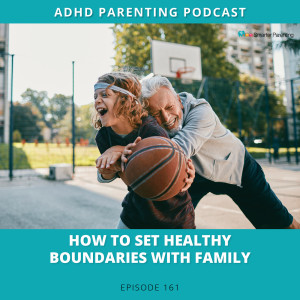
Wednesday Nov 10, 2021
Ep #161: How to set healthy boundaries with family
Wednesday Nov 10, 2021
Wednesday Nov 10, 2021
Setting healthy boundaries with family or friends can be a challenge, but doing so is essential.
Healthy boundaries are nothing more than a contract. I will do this, and in return, you will do that. Unhealthy relationships are those where the contract is uneven, or someone is infringing on a boundary.
Learning to operate under a new boundary can be challenging for many using under an outdated contract or boundary. Your parents may still be working under a parent/child contract that doesn't consider that you're an adult with children of your own. Or an older sibling may still think it's their place to offer advice because they've "been there."
Overtime boundaries will change. The boundaries that were in place when you were ten will have changed as you became 18. Changing boundaries does not mean that the previous contract was unsuccessful, and adjusting boundaries means focusing on growing relationships.
It's also important to teach our children what healthy boundaries look like for friends, family, and peers which will help them have greater success in the future.
When learning how to better communicate with others, don't start with the most complex subjects. Begin with relatively easy topics and then progress to the more difficult issues as you become better acquainted with the skill.
Setting healthy boundaries with family members will significantly improve relationships. Let us know how it goes or any struggles you experience as you set boundaries with family.
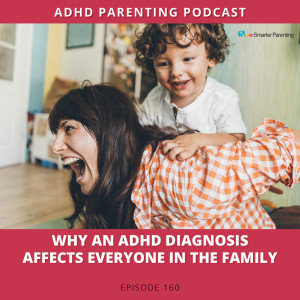
Wednesday Nov 03, 2021
Ep #160: Why an ADHD diagnosis affects everyone in the family
Wednesday Nov 03, 2021
Wednesday Nov 03, 2021
It's no secret that when one child is diagnosed with ADHD, it impacts everyone in the family.
Children without a diagnosis may start to act out, become resentful of the time and attention that one child may be receiving, or question why what they do right goes unnoticed.
Using the skill of Effective Praise can change the dynamic of the family. Effective Praise shifts the focus from what is going wrong to what is going right, which is powerful.
Effective Praise promotes repeat positive behavior, and it also encourages a child to change their behavior as kids like receiving praise.
Effective Praise changes behavior because it does two things. First, it is specific in what your child did well, and second, it gives your child a reason that matters to them why they should continue the behavior.
When parents combine those things, magic happens. Children not only want to be acknowledged for what they are doing right, but they also want a reason to continue that behavior. The motivation for behaving well can be additional time on the computer or tablet, more time with friends, the ability to make more decisions independently, etc. The list is truly endless, and it will depend on your child and their personality.
To learn more about Effective Praise, visit SmarterParenting.com
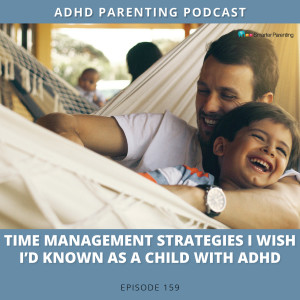
Wednesday Oct 27, 2021
Ep #159: Time management strategies I wish I‘d known as a child with ADHD
Wednesday Oct 27, 2021
Wednesday Oct 27, 2021
Many children--and-adults-with ADHD struggle with time management and need strategies that will set them up for success.
Children who can learn strategies can better transition to adulthood and be successful in work, school, and their personal lives. Children who don’t discover time management strategies will often struggle with substance abuse and failure in their work and personal lives.
Avoidance, procrastination, and distraction are all symptoms of ADHD and can be more comfortable for a person than getting things done or facing difficult situations. Those with ADHD often don’t like dealing with difficult feelings.
In this podcast, Parenting Coach Siope Kinikini, discusses his struggles with ADHD as a child and what strategies he has implemented that have been life-changing.
The two strategies that both children and adults with ADHD can implement today are the time-boxing method and the SODAS Method.
Because those with ADHD can have difficulty seeing the big picture or determining priorities, the time-boxing method helps them decide what they need to do. By visually seeing what needs to be done, they are more likely to do it, as those with ADHD often thrive once they begin.
The SODAS Method helps remove the emotion from situations and keeps them focused on the present.
Using these two methods will help you or your child with ADHD play to strengths and find successful outcomes.
You can learn more about the SODAS Method here.
If you'd like personalized help implementing time management strategies for you or your child, we can help. Sign up for Parenting Coaching and let us create solutions that will work for you!
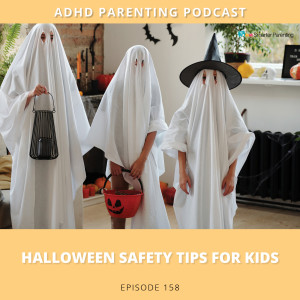
Wednesday Oct 20, 2021
Ep #158: Halloween safety tips for kids
Wednesday Oct 20, 2021
Wednesday Oct 20, 2021
Halloween is such a magical time for kids. In all that excitement kids can make unsafe or unwise decisions.
As parents, we don't want to ruin the day's magic, but we do want them to be safe. We want them to remember to stay safe when street crossing the street. We want them to respect others' property and be polite, and we want them to stick to areas we are comfortable with.
Because there is so much stimulation happening for children on Halloween, we must practice what we want beforehand. If we want our children to respect others' property, we need to show them what that looks like. For example, if we don't want them walking on the lawn, we need to take them out and physically practice walking up to the door and back on the sidewalk and not cutting across a law. If we want them to be polite and say please and thank you, we need to practice it with them.
Another part of keeping kids safe during Halloween is understanding their individual needs. For some kids, large crowds or "scary" looking houses may present a problem, so showing them how to respond to those situations will be extremely helpful to avoid meltdowns and anxious feelings.
The more you can prepare your child for what may happen on Halloween and how they need to respond, the better the actual night will go.
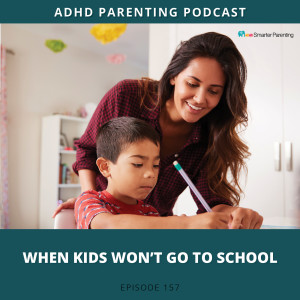
Wednesday Oct 13, 2021
Ep #157: When kids won‘t go to school
Wednesday Oct 13, 2021
Wednesday Oct 13, 2021
It's not unusual for kids to have days where they don't want to go to school, but what happens when your child flat out refuses to go?
The reason why your child is refusing to go to school could be because they are being bullied or made to feel unsafe. They may be experiencing high anxiety levels due to a new class, subject, or major changes to friends or family situations such as a divorce, death, or loss of a good friend. They may be experiencing depression, or they may have a learning disability that they are ashamed of.
It is essential to figure out what is causing their discomfort before addressing appropriate courses of action. We recommend using the skill of Decision Making (SODAS Method) to help you and your child together determine what should be done.
The SODAS Method allows you to see the pros and cons together, making a plan on what to do less overwhelming.
When making a plan, remember it's about what is best for your child and not necessarily what you want. While you may want your child in school full-time, a half-day may be in their best interest. Or your child may benefit from therapy or medication.
Once you make a plan, it's okay to revisit the plan in a week, month, or six months to determine if it's still effective or if it needs to be modified.
You can learn all about the skill of Decision Making (SODAS Method) on SmarterParenting.com
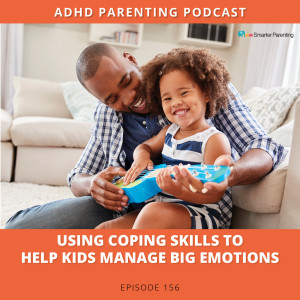
Wednesday Oct 06, 2021
Ep #156: Using coping skills to help kids manage big emotions
Wednesday Oct 06, 2021
Wednesday Oct 06, 2021
Does your child throw tantrums? They are not doing it because they hate you, though sometimes it may feel like that. Instead, your child is feeling/dealing with large or unfamiliar emotions and doesn't know how to handle what they are going through, so they resort to anger, frustration, crying, or even silence.
Coping skills allow a child to better process what is happening safely. When using a coping skill, the goal is to bring a child back into a neutral or calm space.
There are hundreds of coping skills, also called calm down strategies, ranging from crumpling up a piece of paper to yoga or visualization. What will work best for your child will depend on various factors, such as how they learn and what they are naturally drawn to.
Teaching a child a coping skill in the middle of heightened emotions will not be effective. It's crucial to determine coping skills and to practice them at neutral times. Doing so will allow your child to become familiar with how those coping skills make their body feel.
Involving children in learning coping skills allows them to feel more invested in using them when they are upset. You can help them determine what coping skills would work best for them using Decision Making (SODAS Method).
Teaching children how to coping with unfamiliar feelings and situations will benefit them throughout their entire life. Successful adults are those who have learned how to manage when things become overwhelming or stressful.
Coping skills are beneficial for kids who have ADHD as it helps them process what is going on around them and brings them back to the present.
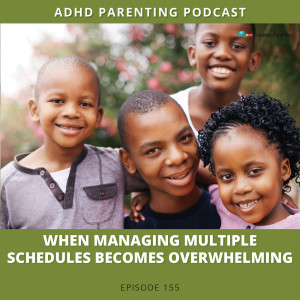
Wednesday Sep 29, 2021
Ep #155: How to manage multiple schedules
Wednesday Sep 29, 2021
Wednesday Sep 29, 2021
In today's episode, Parenting Coach, Siope Kinikini gives parents practical advice for keeping family life balanced.
We all want what’s best for our children, and often we feel that means giving our children various opportunities to grow and cultivate talents. Yet, for many parents, managing numerous activities and schedules in addition to everything they need to do can feel overwhelming.
It is okay for parents to take stock of what is happening and make adjustments, including reducing their child’s activities, if needed. No one in the family benefits if mom or dad is grumpy, tired, or overwhelmed.
Parents should evaluate all extracurricular activities on whether they are essential and what the family can do. If you’re trying to figure out what is the best for your child and your family, we recommend using the SODAS Method to help you determine the best course of action.
The SODAS Method allows you to see the pros and cons, which will enable you to make the best-informed decision for you, your child, and your family.
You can find more information about the SODAS Method on the Smarter Parenting website.
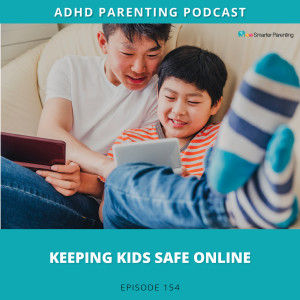
Wednesday Sep 22, 2021
Ep #154: Keeping kids safe online
Wednesday Sep 22, 2021
Wednesday Sep 22, 2021
Kids are growing up with access to online, and parents must help them navigate that safely.
A one-size-fits-all approach to internet safety and usage isn't realistic. Your child's age and needs should determine screen time and internet usage and recommend using the same rules to both your child's online and virtual environment.
Parents should be monitoring what their child is doing online. You should be familiar with what apps, games, and websites they are visiting and what they are teaching. There are a lot of apps and articles that can give parents an idea of what their child is doing online. One we recommend is Common Sense Media. Parents can find additional app recommendations in the show notes at SmarterParenting.com
As they grow, how they interact with apps and online may change. It's essential to have continued conversations about what is appropriate and inappropriate. Effective Communication allows both parents and children to have meaningful, healthy, and productive discussions regarding time limits, usage, and how they spend their time online, creating healthy digital literacy.
As technology becomes more ingrained in our lives, the recommendation for a child's use of technology has changed and will continue to change. What type of media your child is accessing is more important than how long they are accessing it. For example, it's better for a child to play an interactive learning game for three hours than playing a non-learning game for an hour.
While thinking about everything you need to teach your child about online safety may feel overwhelming, remember you don't need to teach everything all at once. It would be best if you were having ongoing conversations that you adjust and revisit as needed. You can do this!
For more information about online safety, don't forget to check out this episode's notes on SmarterParenting.com

Wednesday Sep 15, 2021
Ep #153: Tips for creating routines that work
Wednesday Sep 15, 2021
Wednesday Sep 15, 2021
This episode is one you don't want to miss!
With kids returning to school, we could all use a little help in establishing, or reestablishing, routines that work for our family.
In today's podcast, Parenting Coach, Kimber Petersen shares practical tips families can use to reduce stress and frustration regarding back-to-school routines, including opening up the lines of communication better and teaching them responsibility through family meetings.
Kids thrive on routines. They feel safe when they know what they should do—having patterns that work builds trust and strengthens relationships.
When establishing routines, it's vital to look at both the needs of the family and what is realistic. The worst thing you can do is to develop practices that create more issues and problems.
Establishing routines should be a collaboration between you and your child. When children have a say in routines, they are more likely to follow expectations. Having them create routines is a great way to help them learn critical thinking skills and responsibility.
Regularly evaluate routines to determine if they are working. Don't be afraid to make adjustments if practices aren't working.

Wednesday Sep 08, 2021
Ep #152: How to get your child to accept no
Wednesday Sep 08, 2021
Wednesday Sep 08, 2021
As parents we tell our children "no" a lot. Those "no" answers are because we're tired, distracted, or have reached decision fatigue.
There are times when we need to say "no" to our child, but more frequently than not, there are times when we say no that we can say "yes."
Determining when we can say "yes" to our children's requests will help them gain confidence and strengthen your relationship.
When you're saying "no" to your child, ask yourself these questions about if you can say "yes."
Is it safe? Is it reasonable? Is it best for my child?
If you can answer "yes," it's okay to change your mind and to change a "no" answer to a "yes" response.
There will be times when "no means no," and your child needs to accept that, but you also have to be able to enforce it. A child knows when a "no" answer doesn't mean "no."
Using the skill of Preventive Teaching helps you prepare your child for getting and accepting a "no" answer.
You can learn more about the skill of Preventive Teaching at SmarterParenting.com.
